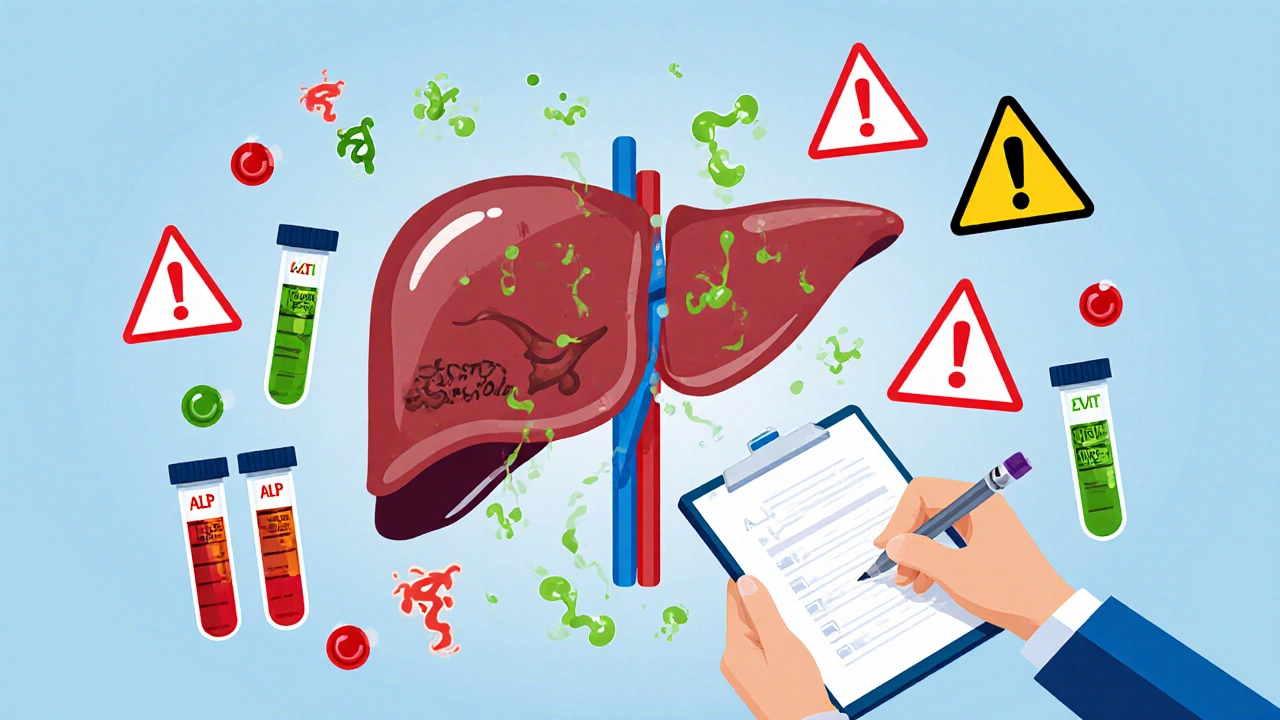Acitretin can improve severe skin conditions but risks liver damage. Learn how to monitor liver enzymes, avoid alcohol, and protect your liver during and after treatment.
When your doctor talks about liver enzymes, proteins produced by liver cells that help speed up chemical reactions in the body. Also known as hepatic enzymes, they’re not a disease themselves—they’re warning signals. High levels don’t mean you have liver disease, but they do mean something’s stressing your liver. Think of them like the check engine light in your car: it doesn’t tell you exactly what’s wrong, but it tells you to look closer.
The two most common liver enzymes tested are ALT (alanine aminotransferase), an enzyme mostly found in liver cells and AST (aspartate aminotransferase), an enzyme found in liver, heart, and muscle tissue. When liver cells get damaged, these enzymes leak into the blood. A spike in ALT usually points more directly to liver trouble, while AST can also rise with muscle injury or heart issues. Another enzyme, ALP (alkaline phosphatase), linked to bile ducts and bone metabolism, often shows up in tests too—especially if there’s a blockage or bone-related condition.
Many of the medications you might be taking can raise these numbers. For example, leflunomide used for rheumatoid arthritis, anastrozole for breast cancer, and even common painkillers like ibuprofen can affect liver enzyme levels. That’s why doctors check them before and during treatment. Even something as simple as heavy alcohol use, fatty liver from weight gain, or a viral infection like hepatitis can cause temporary spikes. The key isn’t just the number—it’s the trend, the pattern, and what else is going on in your body.
What you’ll find in the posts below aren’t just abstract medical explanations. These are real-world stories and guides from people who’ve dealt with elevated enzymes while managing chronic conditions, taking multiple meds, or trying to protect their liver while staying active. You’ll see how liver enzymes connect to weight-loss drugs like orlistat, hormone therapies like norethindrone, and even antibiotics like clindamycin. There’s no fluff—just clear, practical info on what to watch for, when to worry, and how to talk to your doctor about your results.

Acitretin can improve severe skin conditions but risks liver damage. Learn how to monitor liver enzymes, avoid alcohol, and protect your liver during and after treatment.